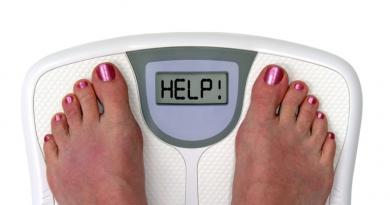The ROC (Russian Olympic Committee) has approved the composition of the team that will take part in the home Olympic Games. According to ROC representatives, this is the largest team in the entire history of the country.
The committee's press service reports that the team included 223 people representing 31 regions of the Russian Federation. The agency claims that even in Soviet times, the country never had such a huge representation at the Winter Olympics. Alexander Zhukov, who holds the post of President of the ROC, and Vitaly Mutko, who holds the post of Minister of Sports, spoke about the features of the Russian team.
Before the start of this meeting, Vitaly Mutko said that problems had arisen with some federations: heated and lengthy discussions took place for a long time, but ultimately the parties were able to find a compromise. As a result, the national team has been formed, the names of the substitutes have already been named and the deadlines for possible replacements are known. Now Russian athletes who will participate in the Games have begun final stage of your preparation.
Zhukov and Mutko reported that the team included many young and ambitious athletes. Alexander Zhukov is sure that Russian team will be able to win medals in 11 sports (remember that in total medals will be played out in 15 sports at the Sochi Olympics). He is confident that in Sochi Russian athletes will be able to demonstrate their full potential.
At the same time, Vitaly Mutko added that in any case, Russian fans will support their compatriots. He is sure that from today the national team is not divided into representatives of one region or another, from today it is a single Russian team.
Upon agreement Olympic composition Most of the questions arose about the candidacy of Evgeni Plushenko, but Alexander Zhukov reports that this decision was made by the Federation figure skating, he is confident that all procedures comply with the regulations. At the same time, the head of the ROC emphasized that he approves of the decision of the federation, which believes that Plushenko has a greater chance of success.
Alexander Zhukov also said that in the near future the team will name the name of the standard bearer; according to him, the athletes who are part of the team will decide this themselves.
At the end of this meeting, journalists inquired about the problem of doping, but the Minister of Sports said that the doping services do not have any complaints against the Russian athletes who are part of the Olympic team.
“This is very important question, and we must give an exact answer to it, says Vitaly Mutko. – Every year it becomes more and more difficult to be an athlete, it is necessary to fill out modern system ADAMS, you need to train a lot and constantly meet with doping officers - you need to be a real professor. At the moment there are no comments against our athletes. I would also like to add that our anti-doping laboratory has received the necessary license; today it is second only to the one in Cologne.”
Journalists also inquired about safety during the Olympics.
“At the moment, all necessary security measures have been taken,” says Alexander Zhukov. – I am confident that the Games will take place without any incidents. Yesterday information appeared about threats that were spreading on the Internet, but I am sure that this is a simple provocation.”
58 - Internal news page
The Russian team finished its performance at the Olympic Games in Rio de Janeiro in fourth place in the unofficial team competition, having won 56 medals.
7:09 22.08.2016
The Russian team finished its performance at the Olympic Games in Rio de Janeiro in fourth place in the unofficial team competition, having won 56 medals - 19 gold, 18 silver and 19 bronze. This worst result over the 20 years that Russia has been performing at summer games a separate team, but it must be taken into account that almost all Russian athletes, a full complement of weightlifters and most of the rowing team. Russia achieved victories in those sports that were not affected by doping scandals, and domestic athletes there were no problems with admission to the Olympics.
Reaching its peak in 2000 in Sydney, the number of gold medals won by Russian athletes summer olympics, has been steadily decreasing since then. 16 years ago Russian athletes won 32 gold medals, taking, like four years earlier in Atlanta, second place in the unofficial team competition. In Sydney, the Russian team competed even with the leaders of world sports of recent decades, the Americans, falling behind by only five awards highest quality.
Already in 2004 in Athens, the Russian team dropped to third place in the overall standings (28 gold medals), finally losing out to the Chinese athletes, who were increasing their strength for the next, home Olympics. In Beijing and London, Russian athletes won 22 gold medals each, but due to investigations into doping cases and re-checks of samples taken at the Games in 2008 and 2012, this number may decrease.
Four years ago, the Russian team also missed out on the hosts of the Games, the British, in the overall team competition, although it remained third in the total number of awards. In Rio de Janeiro, the Russian team was ahead of the German team in the fight for fourth place, noticeably surpassing it in the total number of medals. In addition, the Russians' performance in Rio de Janeiro became more diverse: they won medals in 15 sports.
The result was affected by suspensions
The worst performance in Rio de Janeiro in 20 years of participation of Russian athletes in the Olympic Games, of course, was largely due to the exclusion from the Games of almost all members of the country's athletics and rowing teams, as well as weightlifters - in full. In athletics at the 2012 Olympics, Russian athletes won six gold medals, although it was unlikely that they would repeat this result even if they competed in full, given that many team leaders and almost all walkers were disqualified.
In weightlifting and rowing in London, Russian athletes did not win gold medals at all; there was no particular reason to expect them to big victories and in Rio de Janeiro. The only person who could count on success in Brazil was Tatyana Kashirina, a four-time world weightlifting champion in the over 75 kg category. At the 2015 World Championships in Houston, America, she won with overall result 333 kg, whereas at the 2016 Games vice champion In the world championship, Chinese Meng Suping needed a total of 307 kg to win.
In any case, possible gold medals for representatives athletics and there would not be enough weightlifters for the third overall team place, given that after the home Olympics the British did not slow down, again showing excellent result. It is possible that even if Elena Isinbaeva and other strongest athletes in the country had competed in Rio de Janeiro, the Russian team would have shown its worst result in the history of the Olympic movement in any case.
The performance of the Russian team was also affected by the general psychological background, when many team leaders, including the main hope in swimming, Yulia Efimova, were allowed to participate in the Games at the very last moment - thanks to decisions of the Court of Arbitration for Sport. Any accountant can calculate lost profits in business, but in sports it is impossible to assess moral damage in lost gold medals, subjunctive mood Olympic Games They don’t tolerate it.
Breakthrough in fencing
At the Games in Rio de Janeiro, only in fencing, the Russian team exceeded the expectations of fans, winning seven medals, four of them gold. This happened largely also because fencing is a doping-free sport, and all the troubles last months The Russian national team was not affected. There was no talk about the non-participation of Russian fencers before the Games, and besides, the International Fencing Federation is headed by Alisher Usmanov, on its part there could be no complaints against athletes from Russia.
The Russian team performed better only in wrestling, winning four gold medals and nine in total. However, it is obvious that Russian wrestlers could have performed better, given several disappointing defeats, in particular to Natalia Vorobyova and Bilyal Makhov.
The Russian team won two gold medals out of two possible in synchronized swimming And rhythmic gymnastics, but in these events they are already accustomed to the dominance of Russians, and any other result would be considered a disaster. The victories of judokas Beslan Mudranov and Khasan Khalmurzaev became the main events of the first days of the Olympics, but the Russian judo team performed generally worse than in London, where there were three gold medals and a total of five. In 2012, judokas made a real breakthrough, and it is hardly possible to improve such results. Returned gold olympic medals in Russian pentathlon Alexander Lesun.
Once again, Russian shooters were left without awards of the highest standard, although the London failure was not repeated - they won two silver and two bronze medals. Artistic gymnasts were left with the same gold medal - and again Olympic champion became Aliya Mustafina. The boxers also did not perform well, with one gold medal, which was won by Evgeniy Tishchenko. In total, the boxers won five awards; even the harsh speech in the press by Alexander Lebzyak, who thus tried to shake up the team, did not affect the overall picture.
Most sports again did not turn out to be “golden” for the Russian team. However, some performances of young athletes, even if not victorious, gave hope. Excellent sprinters have appeared in Russia in the cycling track - Anastasia Voinova and Daria Shmeleva became second in the team sprint, and 19-year-old Stefania Elfutina, who won bronze in the surfing class, was also pleased sailing. Promising swimmers also appeared in the country - bronze Olympic medalists Evgeny Rylov (back) and Anton Chupkov (breaststroke). The silver of the archers in the team championship should also be considered a breakthrough, as should the medals of very young shooters - Vitalina Batsarashkina and Vladimir Maslennikov.
water failure
In swimming and especially diving at the current Olympics, the Russian team again performed frankly poorly. Yes, Yulia Efimova in a different situation might have won not two silvers, but two golds, but in any case last victory Russian swimmers in the pool dates back to 1996, when Alexander Popov and Denis Pankratov won two gold medals each. For 20 years, Russia has ceased to be considered a swimming power. How brilliant swimmers can win the Olympics was demonstrated in Rio de Janeiro by the Americans, who won 16 gold medals in the pool - almost the same number for the entire Russian team.
The divers were left without any awards at all, although four years ago in London Ilya Zakharov and Evgeny Kuznetsov gave a real fight to the Chinese, and Zakharov even won gold on the three-meter springboard.
The record low number of Russian participants in the Rio de Janeiro Games is due not only to the suspension of track and field athletes and representatives of other sports. Only four teams competed at the Olympics. game types sports - men's and women's volleyball teams, as well as handball and water polo players. However, the women's handball and water polo teams performed above all praise. For the first time in 16 years, water polo players won Olympic medals, albeit bronze ones, while handball players, under the leadership



